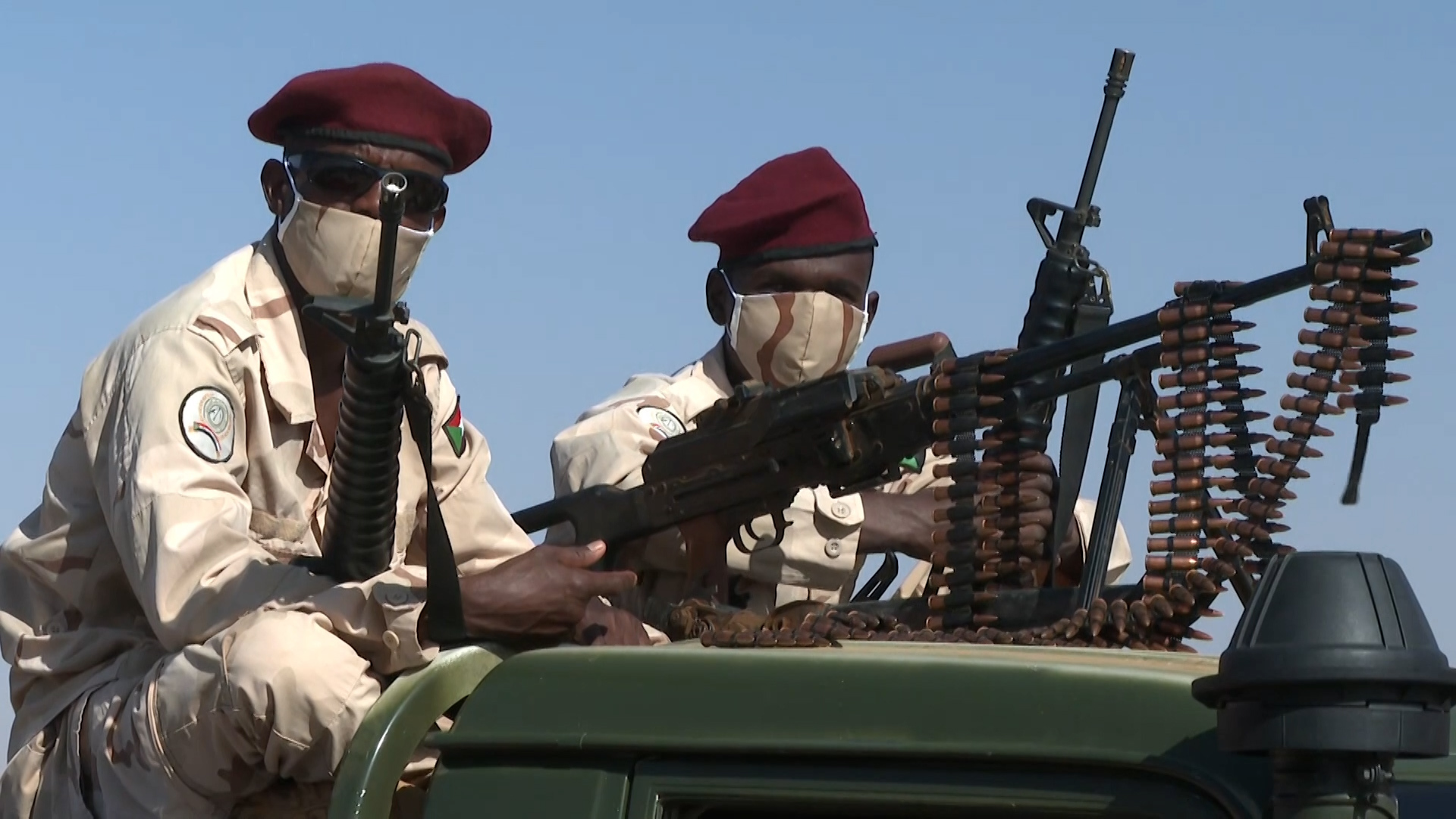A Sudanese source revealed to Al Jazeera that a mediation committee persuaded the army commanders and the Rapid Support Forces to hold a direct meeting between them, while tension and escalation continued in Khartoum and Meroe.
The leader of the Alliance for Freedom and Change - the Democratic Bloc Group - Abdul Aziz Ashar told Al Jazeera that a tripartite committee - of leaders of the armed movements consisting of a member of the Sudanese Sovereignty Council Malik Agar, and the head of the Justice and Equality Movement Jibril Ibrahim, along with the head of the Sudan Liberation Movement and Darfur Governor Minni Minawi - was able to convince both the head of the Sovereignty Council Abdel Fattah Al-Burhan and the commander of the Rapid Support Forces Mohamed Hamdan Daglo (Hemedti) to sit down in today's meeting to resolve differences.
Al Jazeera's correspondent in Khartoum, Taher al-Mardi, said that the committee met today with Hemedti, and assured them of non-escalation and his readiness to meet with Burhan without conditions.
He added, quoting the mediation committee, that the meeting will take place today without specifying a time for that.
He also pointed out that there are mediation efforts by other parties - some of them external - trying to bring views closer and reduce the state of tension between the two parties.
Earlier, envoys and special representatives from France, Germany, Norway, Britain, the United States and the European Union expressed grave concern about the escalation of tensions in Sudan, and the risk of escalation between the Sudanese Forces and the Rapid Support Forces.
The work of the Joint Military Commission has been suspended
Meanwhile, two sources in the Sudanese army and the Rapid Support Forces confirmed to the island the suspension of the work of the Joint Military Committee, which includes officers from both sides, and was working within the framework of the security and military reform file.
The Sudanese army source added that the stalled work of the joint committee came before recent developments and after the divergence of positions, pointing out that the deployment in the Merowe area made it difficult to sit at the same table in light of what he described as a hostile climate.
The committee discussed a number of proposals on the time required to integrate the RSF into the Sudanese army and other issues related to reform in the military.
Continued tension
Meanwhile, tension and fears of escalation prevail in the capital Khartoum and the northern city of Meroe, after the Sudanese army accused the Rapid Support Forces of mobilizing forces inside the capital and some cities, and warned of a dangerous turn the country is going through.
Contacts from international, regional and local parties have intensified to contain tension following the deployment of RSF forces near Merowe airport in the northern state.
The army accuses the forces of sending more reinforcements to the city of Meroe, where the army has also reinforced its forces.
Images were also broadcast showing the arrival of convoys of military vehicles belonging to the Rapid Support Forces to Khartoum from the states, especially from Darfur.
The dispute between the Sudanese army – led by General Abdel Fattah al-Burhan – and the Rapid Support Forces (RSF) led by Lieutenant General Mohamed Hamdan Dagalo – emerged after statements by the latter in which he said that he discovered from day one that the army commander's decisions in 2021 that excluded the civilian government were implemented to return the isolated National Congress regime.
Following the signing of the framework agreement, the army demanded the implementation of the agreement, which it said would integrate the RSF into the army, which would determine its movements, and demanded that it be subordinate to the Ministry of Finance and subject to government procedures.
For its part, the Rapid Support Forces said that they adhere to the framework agreement, and do not oppose merger, but according to timetables, while ensuring that their officers are equal to army officers in privileges, and demanded that the support forces stop what they called recruitment into the army during this period.

